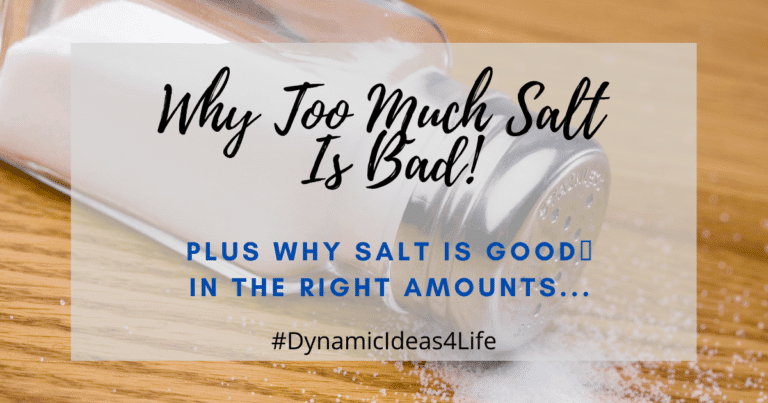
Probiotics, also known as “good bacteria,” have been gaining popularity as dietary supplements for a variety of health conditions, and for a long time now. Digestive health is certainly the first thing we might think of when we talk about Probiotics but Are Probiotics Good For Heart Problems? This is a very interesting question and if you are looking for solutions to help improve your heart health this is certainly something to think about.
So, while there is still much research that needs to be done in this area, studies have been taken that have shown promising results in terms of the potential benefits of probiotics for better heart health.
Heart disease is a major health concern worldwide, and is the leading cause of death in many countries. It is caused by a variety of factors, including high blood pressure, high cholesterol, obesity, and a poor diet.
Probiotics have been studied for their potential to help lower cholesterol levels, maintain healthy blood pressure, and improve gut health – something that is known to have a positive impact on overall cardiovascular health.
Case and point this is why I have decided to write this article today…
Are Probiotics Good For Heart Problems?

According to one study published in the Journal of the American College of Cardiology, this found that people who consumed probiotics for 12 weeks had a significant reduction in total cholesterol levels and LDL cholesterol (the “bad” cholesterol) compared to those who did not take probiotics.
Also, another study published in the European Journal of Epidemiology found that probiotic consumption was associated with a lower risk of cardiovascular disease.
Plus besides this, probiotics have also been found to help reduce blood pressure. One study published in the Journal of Hypertension found that people who consumed probiotics for 8 weeks had a significant reduction in systolic blood pressure compared to those who did not take probiotics.
And another study published in the Journal of Human Hypertension found that probiotic consumption was associated with a significant reduction in diastolic blood pressure.
So this information is definitely quite interesting and perhaps there is a reason why this is.
The Link Between a Healthy Gut and Heart
So Gut health has been found to be linked to overall health, including heart health. Probiotics can help to improve gut health by increasing the number of beneficial bacteria in the gut and by improving the balance of bacteria.
This can lead to a reduction in Inflammation, which is a major risk factor for heart disease.
While probiotics have been found to have potential benefits for heart health, it is important to note that more research is needed to fully understand their effects.
Probiotics should not be used as a substitute for traditional medical treatments or lifestyle changes such as diet and exercise, which are important for maintaining heart health.
Also, It is important to consult with a healthcare professional before taking probiotics or any other supplement, as they may interact with certain heart medications and have potential side effects.
What Foods Are Good For Probiotics

Probiotics can typically be found in foods such as yogurt, kefir, sauerkraut, kimchi, and miso, so incorporating these foods into a healthy diet is a great way to potentially increase probiotic intake.
Dietary supplements are another good option to consider if you can find the right product but It is important to note that probiotics are not a one-size-fits-all solution for heart health.
Different strains of probiotics may have different effects on the body, and the specific strains that are most beneficial for heart health are still being studied.
Some studies have found that certain strains of Lactobacillus and Bifidobacterium may be particularly effective in reducing cholesterol levels and blood pressure.
However, more research is needed to confirm these findings and to determine the optimal dosage and duration of probiotic use for heart health.
Other Reasons To Consider Taking Probiotics
In addition to their potential benefits for heart health, probiotics have also been studied for their effects on other aspects of health. For example, probiotics have been found to improve the symptoms of irritable bowel syndrome (IBS) and other gut disorders, boost the immune system, and can even improve mental health.
In retrospect, this suggests that probiotics may have a wide range of health benefits and that their effects on the body are not limited to the gut.
It is also important to note that probiotics are not the only way to improve gut health. A healthy diet, regular exercise, and stress management are all important factors that contribute to gut health and overall well-being.
Incorporating these lifestyle changes along with probiotic consumption can maximize the benefits for heart health.
For anybody that suffers from conditions such as heart disease the benefits of taking probiotics are very clear to see.
Insulin Sensitivity and Heart Health
One potential benefit of probiotics for heart health is their ability to improve insulin sensitivity. Insulin resistance is a major risk factor for heart disease and type 2 diabetes. Studies have found that certain strains of probiotics can improve insulin sensitivity, which can help to reduce the risk of heart disease and type 2 diabetes.
A study published in the Journal of Nutrition found that people who consumed Lactobacillus Rhamnosus (a common type of probiotic) had a significant improvement in insulin sensitivity compared to those who did not take the probiotic.
Probiotics may also have anti-inflammatory effects, which can be beneficial for heart health. Inflammation is a major risk factor for heart disease, and probiotics have been found to reduce inflammation in the body.
A study published in the American Journal of Clinical Nutrition found that people who consumed probiotics had lower levels of inflammatory markers compared to those who did not take probiotics. [R]
It is also important to note that probiotics may have different effects depending on the individual.
Some people may experience a greater benefit from probiotics than others, and factors such as age, sex, and overall health can all play a role in the effectiveness of probiotics.
How About Weight Loss and Heart Health?

Something else that is very important for maintaining a healthy heart is maintaining a healthy body weight. Being overweight and obese can negatively impact heart health because of how it affects both blood pressure and cholesterol. Many people that are considered overweight by doctors will be told to try and lose weight because of the strain it can put on their hearts.
Probiotics in this respect can help support weight loss in a number of ways. Promoting healthy digestion and a functional microbiome environment can help with both boosting metabolism and better hormonal balance. They can also help significantly reduce inflammation which is another common issue for slow metabolism and metabolic diseases.
Also, another problem that overweight people may suffer from is their fitness. It is known that exercising too hard can actually put the heart under more pressure so this is definitely a big problem for those wishing to get in shape.
However, Probiotics are definitely a good idea to consider for better heart health. By improving digestion the knock-on effects are very clear to see, and this itself is very important for helping the body to lose weight.
For anyone reading this getting the right probiotics is an excellent idea but also here is something else to think about…
Prebiotic Fiber For Heart Health
In addition to probiotic supplements, prebiotic fiber can also be beneficial for gut health and heart health. Prebiotics are non-digestible carbohydrates that act as food for probiotics. They help to nourish the beneficial bacteria in the gut and promote a healthy balance of gut bacteria.
Studies have found that consuming prebiotic fiber can have a positive impact on heart health by reducing inflammation, improving cholesterol levels, and regulating blood pressure.
For example, prebiotic fibers such as inulin and resistant starch have been shown to lower LDL cholesterol levels, which is often referred to as “bad” cholesterol.
Additionally, prebiotic fibers can also help with weight management, which is another important factor in maintaining a healthy heart. Nutrition is basically key here and what you want is a good combination of both probiotics and prebiotics.
Some examples of prebiotic-rich foods include onions, garlic, leeks, asparagus, bananas, and apples.
Although, typically healthy grains and seeds are right up there in terms of Prebiotic Fiber. Examples include Psyllium Husk, Quinoa, Flax Seed, Hemp Seeds, Pumpkin Seeds, and Pea Protein.
How About Probiotic Supplements For Heart Health?
According to my research, the best probiotic supplement for improving heart health is L. reuteri 30242.
Lactobacillus Reuteri 30242 is a specific strain of probiotic bacteria that is known for its potential benefits for heart health. L. reuteri 30242 is a probiotic strain that is found in some fermented foods, such as yogurt and kefir, but you can also find it as a dietary supplement.
Studies have found that L. reuteri 30242 may have a positive impact on heart health by reducing inflammation, improving cholesterol levels, and regulating blood pressure.
One study found that taking a supplement containing L. reuteri 30242 for 8 weeks resulted in a significant reduction in LDL cholesterol levels.
Another study found that taking L. reuteri 30242 for 12 weeks resulted in a significant reduction in systolic blood pressure.
Additionally, L. reuteri 30242 has been shown to have anti-inflammatory effects, which can also be beneficial for heart health. Inflammation can negatively impact heart health in a number of ways so bringing this under control is certainly very important.
However, more research is needed to fully understand the potential benefits of L. reuteri 30242 for heart health and to determine the optimal dosage and duration of treatment.
Studies that have been conducted so far suggest that L. reuteri 30242 may be a promising supplement for improving heart health. I have not looked at many products really as of yet but I would suggest checking out MicroBiome+.
In Conclusion,
Taking probiotics has been found to have many potential benefits for heart health, including the ability to lower cholesterol levels and blood pressure, improve insulin sensitivity, reduce inflammation, and improve gut health.
However, it is important to note that more research is needed to fully understand their effects and to determine the optimal strains, dosage, and duration of use.
It is also important to consult with a healthcare professional before taking probiotics or any other supplement and to remember that probiotics are not a substitute for traditional medical treatments or lifestyle changes.
Incorporating probiotic-rich foods into a healthy diet, regular exercise, and stress management can all help to improve gut health and overall well-being, which in turn can have a positive impact on heart health.
Additionally, the intake of prebiotics and a balanced diet can also support the effects of probiotics.
I shall finish up here but if you would like to keep reading I will conclude with some FAQs below…
{Coming Soon}








